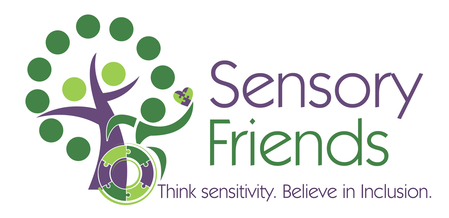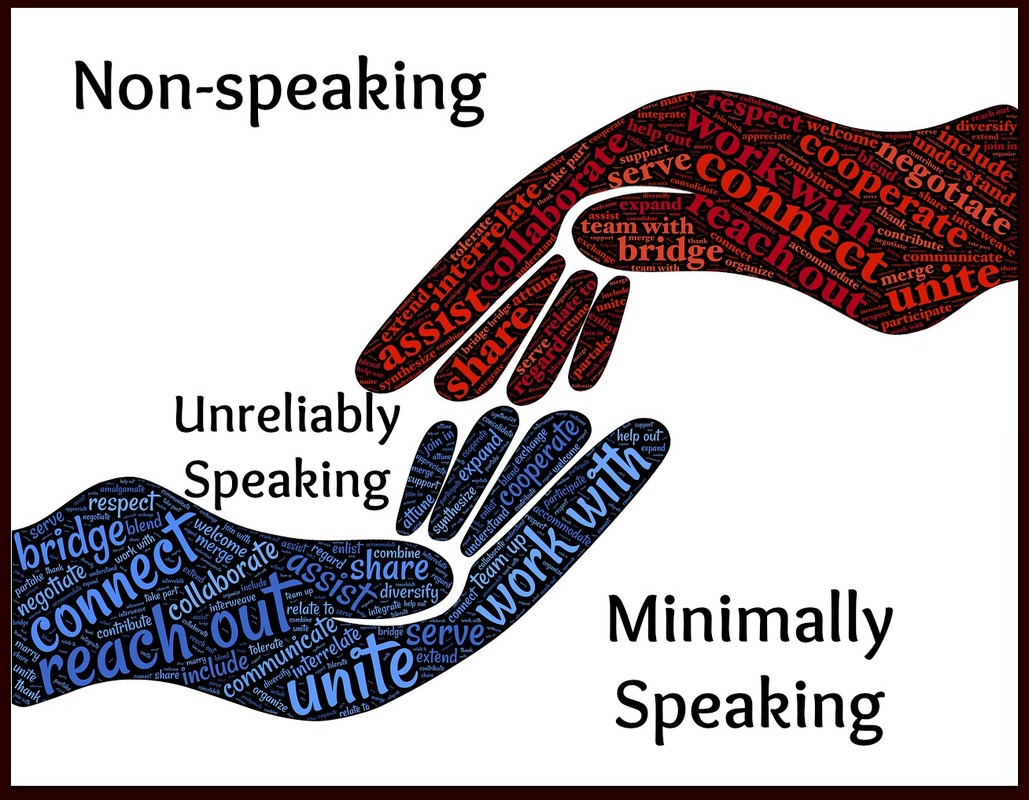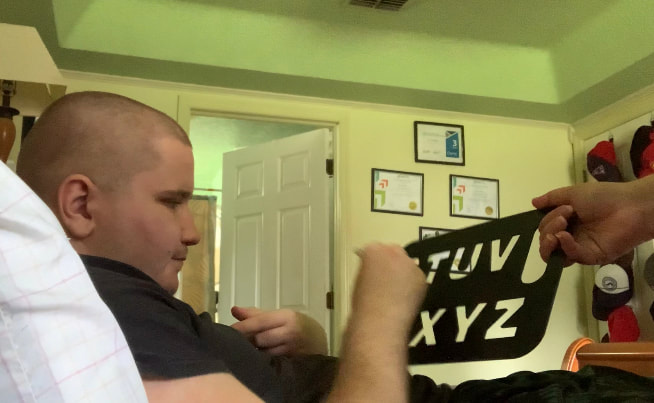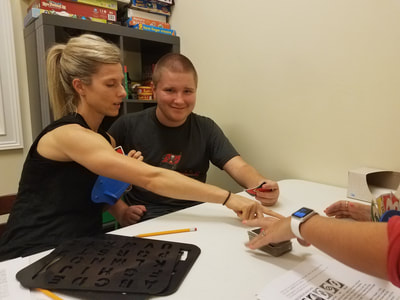NonVerbal – a. being other than verbal; b. involving minimal use of language; c. ranking low in verbal skill.
Verbal – a. of relating to or consisting with words; of relating to or involving words; spoken rather than written.
My message involves, relates to and includes the consistent appropriate use of words. Would we ever describe an individual who is mute with no other known disability as nonverbal or simply a nonspeaking person? The characteristics of a mute individual is described as solely the absence of speech and sound. Please consider that when someone is described as nonverbal (whether the child or adult has autism or other disability), it has been sadly assumed by many that this person has no ability to formulate sentences, responses, opinions, or any thoughts at all. It’s for this reason that in my opinion, non-speaking is a more accurate description of a person who cannot communicate effectively with oral speech. I suppose what it boils down to at the end of the day is sensitivity, etiquette and respect.
We have been working with Dana Johnson, a brilliant Occupational Therapist who has a practice in our neighborhood called Interplay. I actually owe my change of heart in using the term “nonspeaking” to her. Dana introduced a method of communication called, “Letter Board Spelling” to us to try with Richie. With this method, we learned that Richie is incredibly intelligent and pretty good at spelling (something we didn’t know). He’s funny, has an incredible sense of humor, and he wants to learn. At this time, Richie is minimally speaking, but we know he has so much to say and share with us. Our family, therapists and Richie are working hard together to help Richie improve his ability to communicate effectively with us and others. In the meantime, we all wait patiently for that day to come.






 RSS Feed
RSS Feed